The African Americans: Many Rivers to Cross - Season 1

Season 1

Episodes
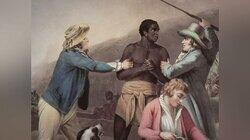
The Black Atlantic (1500-1800)
This episode explores the global experiences that created the African-American people. Beginning a century before the first documented "20-and-odd" slaves who arrived at Jamestown, Virginia, the episode portrays the earliest Africans, slave and free, who arrived on these shores. The transatlantic slave trade soon became a vast empire connecting three continents. Through stories of individuals caught in its web, the episode traces the emergence of plantation slavery in the American South and examines what the late 18th-century era of revolutions - American, French, and Haitian - would mean for African Americans and slavery in America.
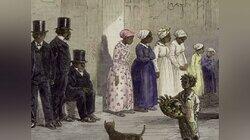
The Age of Slavery (1800-1860)
This episode illustrates how black lives changed dramatically in the aftermath of the American Revolution. For free black people, these years were a time of opportunity, but for most African Americans, the era represented a new nadir. King Cotton fueled the rapid expansion of slavery into new territories and the forcible relocation of African Americans to the Deep South. Yet, as slavery intensified, so did resistance. Individuals including Harriet Tubman, Richard Allen, and Frederick Douglass pushed the issue of slavery to the forefront of national politics. From individual acts to mass rebellions, African Americans demonstrated their determination to undermine and ultimately eradicate slavery.
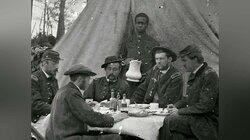
Into the Fire (1861-1896)
This episode examines the most tumultuous and consequential period in African-American history: the Civil War and the end of slavery, and Reconstruction's thrilling but brief "moment in the sun." From the beginning, African Americans were agents of their liberation - by fleeing the plantations and taking up arms to serve in the United States Colored Troops. After Emancipation, African Americans sought to realize the promise of freedom - rebuilding families shattered by slavery; demanding economic, political, and civil rights; even winning elected office - but a few years later, an intransigent South mounted a swift and vicious campaign of terror to restore white supremacy and roll back African-American rights. Yet the achievements of Reconstruction remained in the collective memory of the African-American community.
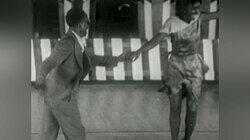
Making a Way Out of No Way (1897-1940)
This episode portrays the Jim Crow era when African Americans struggled to build their own worlds within the harsh, narrow confines of segregation. At the turn of the 20th century, a steady stream of African Americans left the South, fleeing the threat of racial violence and searching for opportunities in the North and West. Leaders like Ida B. Wells, W.E.B. Du Bois, Booker T. Washington, and Marcus Garvey organized, offering different strategies to further black empowerment and equality. The ascendance of black arts and culture showed that a community with a strong identity and sense of pride was taking hold in spite of Jim Crow. "The Harlem Renaissance" redefined how America saw African Americans - and how African Americans saw themselves.
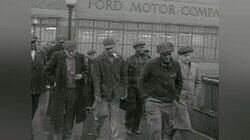
Rise! (1940-1968)
This episode examines the long road to civil rights when the deep contradictions in American society finally became unsustainable. African Americans who fought fascism in World War II came home to face the same old racial violence. But mass media - from print to radio and TV - broadcast that injustice, planting seeds of resistance. The success of black entrepreneurs and entertainers fueled African-American hopes and dreams. In 1955, Rosa Parks refused to give up her seat on a city bus in Montgomery, Alabama, heralding the dawn of a movement of resistance, with Dr. Martin Luther King, Jr. as its public face. Before long, masses of African Americans practiced this nonviolent approach to integrate blacks and whites in public schools, lunch counters, and more. Nonviolence, however, was often met with violence. In 1968, Dr. King was assassinated, unleashing a new call for "Black Power" across the country.
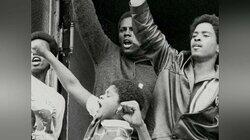
A More Perfect Union (1968-2013)
After 1968, African Americans set out to build a bright future on the foundation of the civil rights movement's victories, but a growing class disparity threatened to split the black community. As African Americans won political office across the country and the black middle class made progress, larger economic and political forces isolated the black urban poor. When Barack Obama was elected president in 2008, many hoped that America had finally transcended racism. By the time of his second victory, however, it was clear that many issues, including true racial equality, remain to be resolved. How will African Americans help redefine the United States in the years to come?
Recently Updated Shows

True Detective
Touch darkness and darkness touches you back. True Detective centers on troubled cops and the investigations that drive them to the edge. Each season features a new cast and a new case.
True Detective is an American anthology crime drama television series created and written by Nic Pizzolatto.

S.W.A.T.
Shemar Moore stars as a locally born and raised S.W.A.T. sergeant newly tasked to run a specialized tactical unit that is the last stop in law enforcement in Los Angeles. Torn between loyalty to where he was raised and allegiance to his brothers in blue, former Marine Daniel "Hondo" Harrelson has everything it takes to be an excellent leader and bridge the divide between his two worlds.

Shōgun
Shōgun, set in feudal Japan, charts the collision of two ambitious men from different worlds and a mysterious female samurai: John Blackthorne, a risk-taking English sailor who ends up shipwrecked in Japan, a land whose unfamiliar culture will ultimately redefine him; Lord Toranaga, a shrewd, powerful daimyo, at odds with his own dangerous, political rivals; and Lady Mariko, a woman with invaluable skills but dishonorable family ties, who must prove her value and allegiance.

